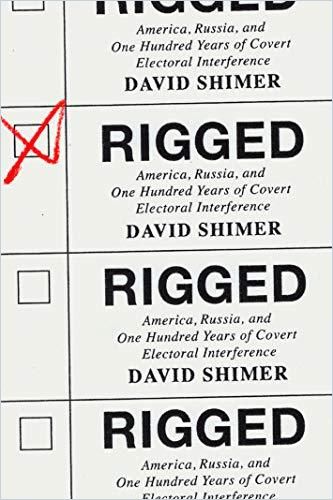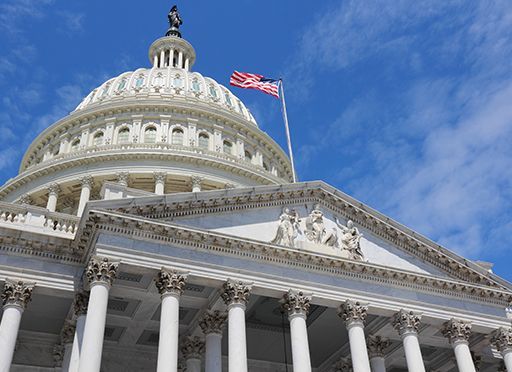Reporter and international relations scholar David Shimer presents a detailed history of Russia and America trying to influence elections.

Russian and American Election Meddling
David Shimer – a New York Times, New Yorker and Foreign Affairs reporter and global fellow at the Woodrow Wilson International Center for Scholars – amply demonstrates his reportorial skills and understanding of international politics in this overview of how Russia and the United States have each meddled in democratic elections over the past century.
By early 2016, he reveals, the United States knew that Russia planned to interfere with the US election, but it failed to anticipate Russia meddling with people’s minds on social media. Russia’s objectives were traditional: to help a preferred candidate and promote discord. But, Shimer argues, the digital age gave Russia new and powerful tools. This detailed history provides a useful reminder of the need for democracies to protect the integrity of their elections.
Timely, well-researched, clear and unbiased, Rigged has garnered praise from journalists and politicians. It’s a New York Times Editor’s Choice Book and a Washington Post Notable Work of Nonfiction, and it was honored by The 2020 Outstanding Work of Literature awards. The New York Times Book Review called it “the first book to put the story of Russian interferences into a broader context…extraordinary and gripping.” Hillary Rodham Clinton, who ought to know, said, “This new and astonishing book by David Shimer will help rescue our democracy. I read every word of it. You should, too.”
The Soviet Union
While the United States took an isolationist stance following World War I, Vladimir Lenin and the Soviet Union sought to undermine Western democracies. As early as 1919, Lenin created the “Communist International” (Comintern) and a system for covert electoral meddling that sought to manipulate voters.
To any leader in Moscow, foreign elections present opportunities to redirect nations. The democratic process of succession practically invites interference.David Shimer
Shimer recognizes that the Comintern didn’t achieve its goal of world revolution, but it did poison democratic institutions by sewing discord.
Postwar Italy
Shimer notes a post-World War II “competition for influence” between the Soviet Union and the US and Western European democracies. The United States, fearing the Communist party would win Italy’s general election in 1948, unleashed the CIA in Italy.
Shimer describes how the CIA spread the message that, if Italians voted for the Communist candidate, they would lose Marshall Plan money and the option of immigrating to America. The fear-based strategy worked; Shimer notes that the United States went on to interfere in Italian elections for years.
Chile
Shimer points out that the CIA’s election influencing wasn’t costly or dangerous, and it produced high returns on investment. He tells how Marxist Salvador Allende won election to Chile’s Senate in 1945 and almost became president in 1952 and 1958. Allende supported Fidel Castro. When Allende ran for the Chilean presidency in 1964, Shimer discloses, the CIA plotted against him as Soviet intelligence backed him. The CIA bribed women’s groups and student organizations; Allende’s opponent won by a landslide.
The KGB
Throughout the 1960s, 1970s and 1980s, Shimer reports, the KGB identified US presidential candidates antithetical to its interests and undermined them. In 1960, for example, Shimer tells how the Soviets opposed Republican presidential candidate Richard Nixon and promoted Democratic candidates Adlai Stevenson and John F. Kennedy.
Democratic Elections
Shimer underscores that, throughout its history, the United States has held legitimate, accountable elections.
The heart of democracy is its elections. In promoting democracy, the United States had to decide how to engage with foreign elections in the post-Soviet world.David Shimer
After the Soviet Union’s collapse, the author maintains that the United States supported free and fair elections among democratic nations. Shimer regards this influence as overt, not covert. Shimer uncovers that America did try to prevent Slobodan Milošević’s reelection in Serbia. But this, he cautions, made the CIA uneasy, because it was a breach of the US post-Cold War approach.
2016 Russian Interference
Shimer recounts that President Barack Obama became aware of Russian attempts to infiltrate the US electoral infrastructure and to access Democratic Party email accounts. Shimer traces Vladimir Putin’s obsession with US politics to Putin’s belief that America sought regime change in Russia and Ukraine. The Russians embraced digital means to manipulate what Shimer refers to as “information spaces” across Europe.
By the summer of 2016, Obama knew that two Russian-funded hacker groups had penetrated the Democratic Party’s systems. Shimer notes that the president urged restraint, as long as the Russians didn’t intervene in actual voting mechanisms.
Social Media
Shimer goes deep on a crucial paradigm shift: He portrays the Obama administration’s concern about a Russian cyberattack occurring on Election Day in 2016. None came. Instead, a Russian covert information operation had in fact begun in 2014.
The operation, Shimer clarifies, had a budget of over one million dollars per month. It sought to inspire distrust in political candidates like Hillary Clinton and in the democratic system. Shimer recounts how the algorithmic design of Twitter and Facebook effectively amplified Russian disinformation.
“Electoral Sovereignty”
The author has no doubt that Russia helped make Donald Trump president. Shimer regards this as dangerous interference with the “world’s most powerful democracy.”
Minds cannot be fixed the way machines can. But if America can renew itself at home, step by step, it will also become less susceptible to attack. David Shimer
To protect US electoral sovereignty, Shimer advises that governments regard covert influence campaigns and efforts to alter votes as serious threats. He argues that the United States must address the social issues that make it vulnerable to interference.
Unbiased
Shimer grinds no ideological ax, save for his love for US democracy and a desire that his book might help protect it. He doesn’t offer a morality play; this is history. Shimer explains what happened in realms few have investigated and fewer still have written about, especially in such lucid, insightful prose. This book should be required reading for US voters, students of American history, and anyone with an interest in global geopolitics and free elections.
An illuminating corollary read is The Origins of Totalitarianism by Hannah Arendt. And for a fictional, but nonetheless factual, presentation of the Soviet Union’s overseas meddling, readers will enjoy Tinker, Tailor, Soldier, Spy by John le Carré.






